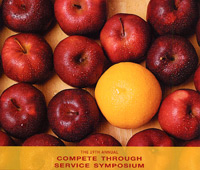
Overcoming the challenges in migrating from products to services: Facing the enemy within
Charging for services involves an organizational shift. Stephen Brown, director of the Center for Services Leadership, says companies must move away from what he calls the logic of manufacturing — how to make things, how to cut costs, how to increase efficiency — towards a logic focused on addressing customers’ needs. Unsurprisingly, the product-dominant firms themselves prove most resistant to this shift. "A service logic focuses on how to help customers solve their problems. This requires a deep and intimate understanding of customers beyond what most product-dominant companies have ever even considered," said Brown.




